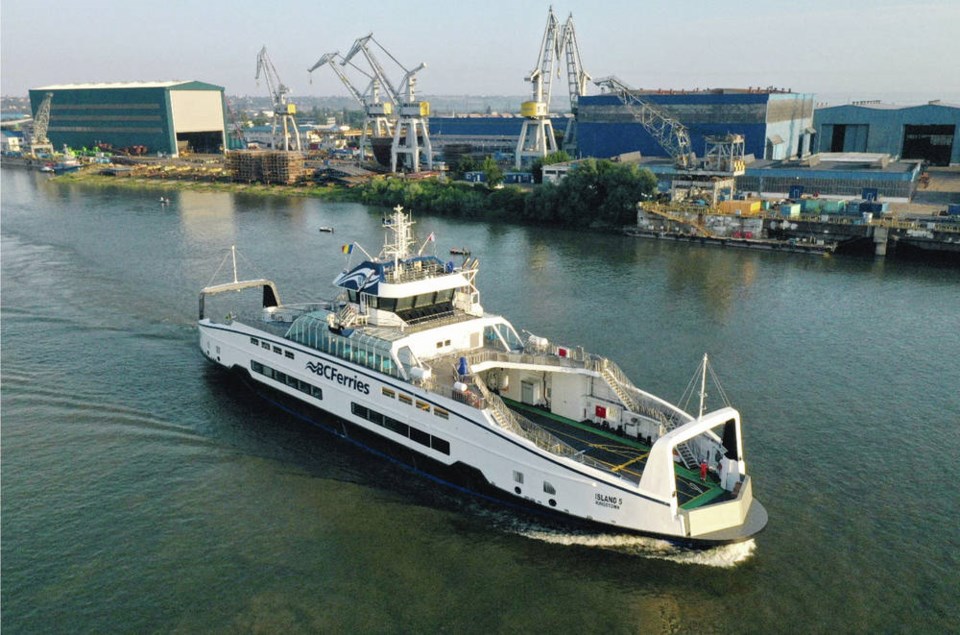The fifth B.C.-bound Island-class ferry left Romania last weekend and is expected arrive in Victoria in two months.
It’s one of six vessels being built by Damen Shipyards at its Romania facility for B.C. Ferries.
The fourth Island-class ferry was off the coast of California on Wednesday. The website vesselfinder.com predicts that ferry will arrive in Victoria on the morning of Aug. 9.
By next year, all six ferries are scheduled to be in service. Built as hybrid diesel-electric ferries, they will use diesel fuel until charging infrastructure is installed to allow them to run solely on batteries.
Capt. Jamie Marshall, B.C. Ferries’ vice-president of shipbuilding and innovation, said Wednesday the Island Class ferries represent a step toward sustainability and standardizing the fleet. B.C. Ferries currently has 35 vessels in 17 classes; the aim is to have only six classes of vessels in the future.
Fewer classes of ferries is better for crew training, allows for similar docking infrastructure, reduces logistical, operational, training and maintenance costs, and makes for a more efficient ferry system overall, the corporation said in a statement.
It also allows B.C. Ferries to move vessels around to replace each other during refits, repairs and other unexpected challenges, Marshall said.
Island Class ferries can carry at least 47 vehicles and up to 400 passengers and crew.
The first two Island-class ferries, the Island Discovery and Island Aurora, were brought to Victoria via a semi-submersible heavy lift vessel in 2019 and are now in service on the Powell River-Texada Island route and the Port McNeill-Alert Bay-Sointula Island route.
The rests have either crossed the Atlantic Ocean and navigated the Panama Canal on their own power or will be doing so.
Meanwhile, B.C. Ferries commissioner Eva Hage has approved spending for the electrification system changes needed on the vessels and for on-shore infrastructure required at nine terminals for the Island-class ships.
B.C. Ferries plans to convert the six vessels to operate on batteries that would be recharged using plug-ins on shore.
No cost for the project has been released. B.C. Ferries told Hage that capital cost estimates are preliminary and that the project would not go ahead until detailed engineering work is completed, the commission said in a statement.
The approved maximum capital costs are confidential for now.
B.C. Ferries is aiming to receive federal funding for the program. It also plans to generate carbon credits through the provincial and federal carbon credit programs.
cjwilson@timescolonist.com



